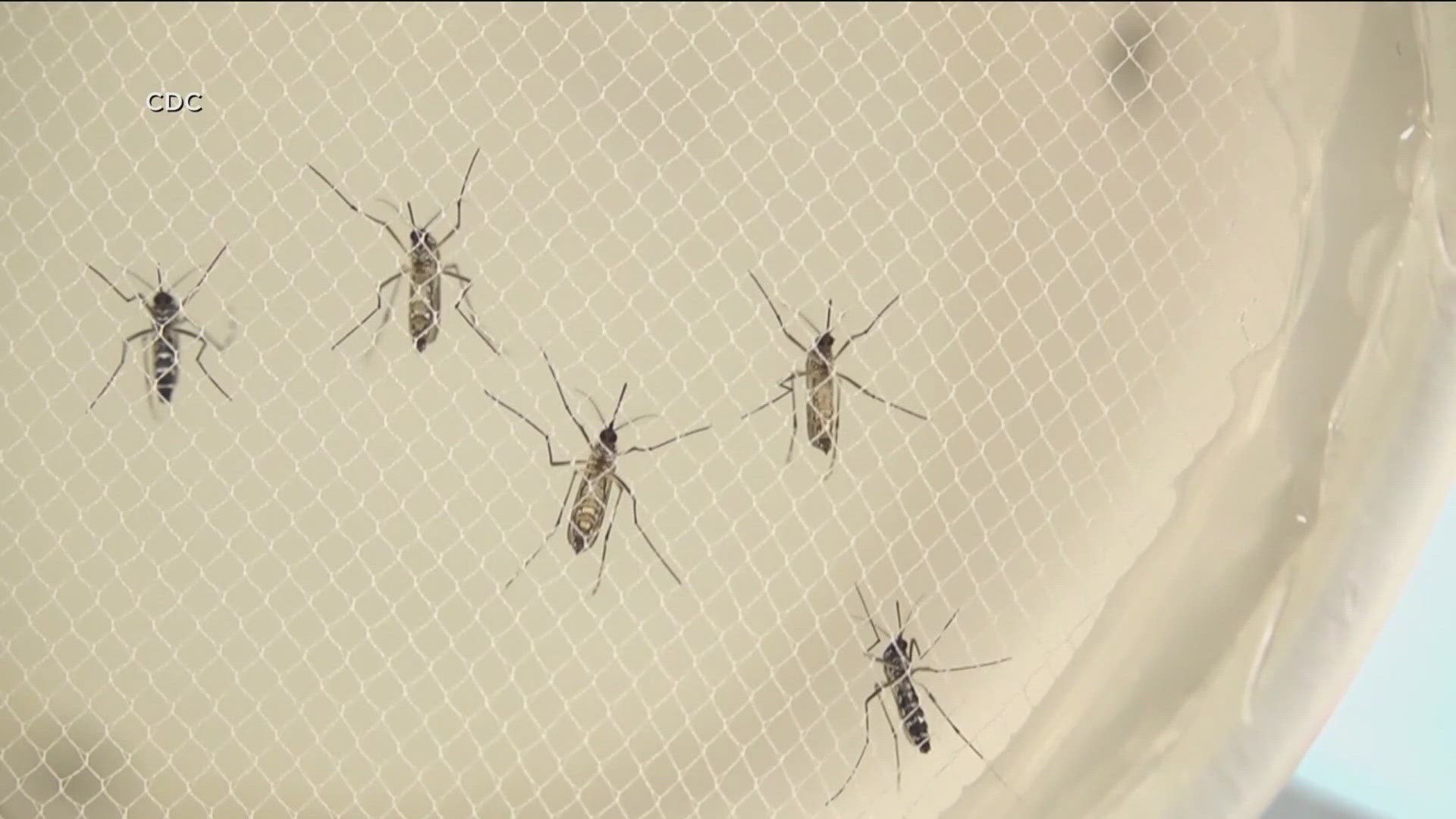SAN DIEGO — Eastern Equine Encephalitis, or EEE, has been around for hundreds of years. It's a rare mosquito-borne disease but can be very serious and even deadly.
The virus originates in birds usually living around freshwater swamps on the East Coast. Mosquitoes contract it when they bite the birds, and can spread it to humans and horses.
A 41-year-old man in New Hampshire died after contracting EEE and two cases were reported in Massachusetts.
Health officials in Oxford, Massachusetts approved a curfew for outdoor activities, urging people to stay indoors after dusk.
The Center for Disease Control reported 30% of people who get severely ill from EEE die. However, there are less severe cases and some show no symptoms.
"They'll develop a fever, tiredness, a headache and then can develop severe neurologic symptoms, including loss of consciousness, seizures, inability to move limbs," said UC San Diego Professor Dr. Robert Schooley.
Schooley said symptoms usually appear between four and ten days after the insect bite. If traveling to the New England area, keep an eye out for possible symptoms when you return.
"They could bring it back with themselves to become ill, but they wouldn't be transmitting it to other people," Schooley said.
The CDC said the disease is on the rise because our warming climate is causing more bugs to appear in new regions. However, health officials are not concerned with it showing up in places outside the East Coast.
"It tends to pop up in nice, natural ecosystems where there's lots of birds and lots of mosquitoes biting those birds," UC San Diego Assistant Professor Noah Rose said. "So wetlands are a classic place for it to pop up."
For those traveling to the East Coast, it's recommended to stay indoors after dusk, wear long sleeves and pants and use mosquito repellents.
While there are serious mosquito-borne illnesses, Rose said there's only three types of mosquitoes out of 3,000 species that are dangerous to humans.
"There's so many different kinds of mosquitoes, and most of them aren't really causing problems for humans. Most of them, they live somewhere in the wild, they bite some animals but not humans most of the time," Rose said. "They might contribute to some disease transmission, but not of things that we're thinking about or caring about."
WATCH RELATED: Invasive 'ankle biter' mosquitos detected in San Diego

